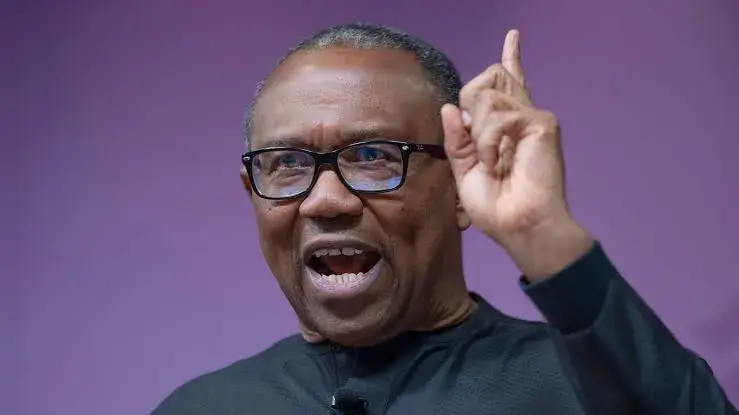
In a development that has sent shockwaves through Nigeria's political sphere, the Special Adviser to President Bola Ahmed Tinubu on Media and Policy Communication, Daniel Bwala, has revealed that some of Peter Obi’s closest aides are in discreet discussions to defect to the All Progressives Congress (APC). This unexpected disclosure is stirring debate across the country, particularly among loyal supporters of the Labour Party (LP) and political observers alike.
According to Daniel Bwala, at least one of Peter Obi's senior handlers has already defected to the APC, and several others are allegedly considering the same move. This revelation has fueled speculation about internal instability within the Labour Party and the motivations driving such political shifts.
Peter Obi, a former governor of Anambra State and the Labour Party’s presidential candidate in the 2023 general election, ran a widely supported campaign that energized young voters and positioned him as a key figure in Nigeria’s political future. Despite his loss to President Tinubu of the APC, Obi has remained an influential opposition voice, particularly on issues like unemployment, economic reform, and governance.
Strategic Realignment or Political Opportunism?
The potential defection of key aides raises questions about whether these moves reflect a strategic political realignment or personal ambitions seeking relevance within the ruling party. Analysts suggest that the APC may be leveraging its incumbency to weaken the opposition, particularly ahead of future elections.
This development also comes at a time when there have been growing discussions about coalition-building among Nigeria’s fragmented opposition parties. Some had speculated that Obi might collaborate with other opposition figures to mount a formidable challenge to APC dominance. However, the apparent internal shifts within his team could disrupt such plans.
The reported defections have sparked concerns about the Labour Party’s cohesion and long-term viability. For a party that surged into national prominence in 2023 largely on the strength of Obi’s popularity and message of reform, losing key personnel may pose both strategic and organizational challenges.
The APC, meanwhile, appears to be consolidating its hold on power. According to Bwala, more defections are likely, which could further destabilize the opposition and reinforce APC’s dominance at a critical juncture in Nigeria’s democratic journey.
The news has ignited intense discussion across social media platforms, with Nigerians expressing mixed reactions. While some view the potential defections as a calculated strategy by the APC to neutralize opposition forces, others see it as a betrayal of the ideals Peter Obi championed during his campaign.
These political developments unfold against a backdrop of national challenges such as high unemployment, inflation, and public disillusionment. During his presidential run, Obi frequently highlighted these economic issues, calling for inclusive governance and transparency. As political realignments intensify, citizens are left to wonder whether these shifts will bring meaningful change or merely reinforce existing power structures.
What Lies Ahead for Peter Obi and Nigerian Politics?
The future remains uncertain for Peter Obi and the Labour Party. While defections are not uncommon in Nigerian politics, the timing and nature of these alleged moves could significantly impact opposition strategies ahead of the next election cycle.
Whether this signals a broader fragmentation of the Labour Party or a recalibration of political alliances remains to be seen. What is clear, however, is that Nigeria's political dynamics are evolving rapidly, and the actions of party leaders and their aides will continue to shape the country’s democratic future.
The reported defection talks involving Peter Obi’s aides underscore the volatile nature of Nigerian politics. As the APC strengthens its grip and opposition parties grapple with internal challenges, the stakes for national governance and accountability remain high. For the sake of democratic progress and national development, it is crucial that political actors prioritize the interests of the Nigerian people over personal or partisan gain.
